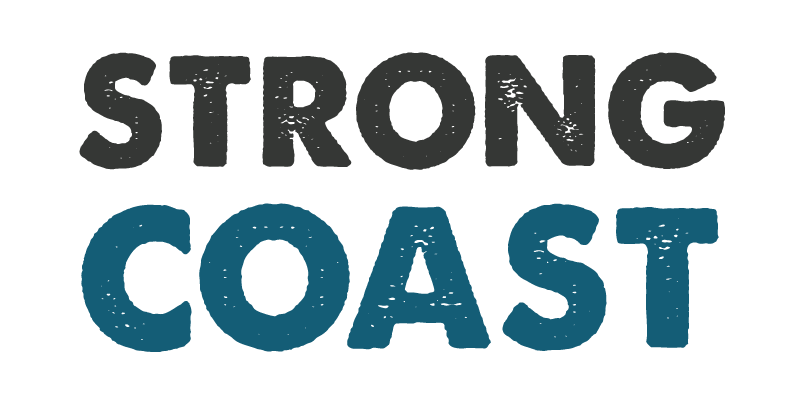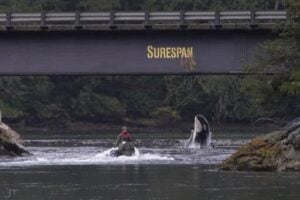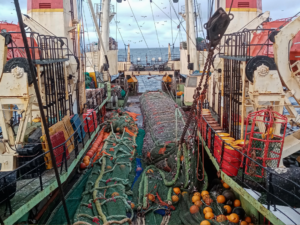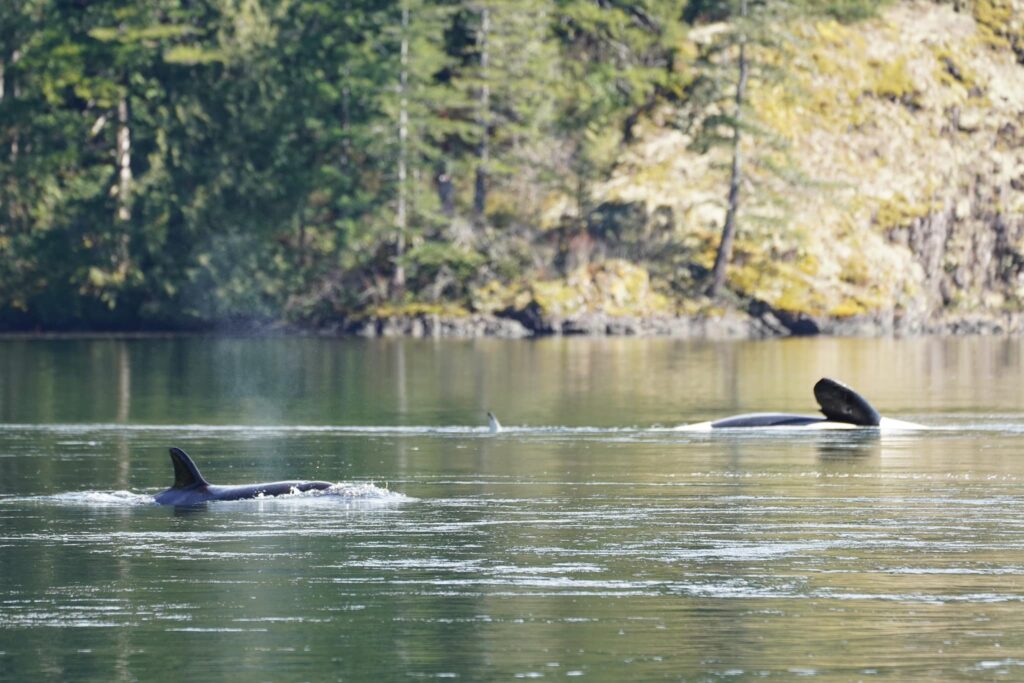
The orphaned orca that escaped from the Zeballos lagoon after being stranded there for a month has not been seen for several weeks. Brave Little Hunter, also known as kwiisahi?is, was last seen around May 10th, and it is believed she still searching for her pod.
From the time of her escape, social media has been abound with reported sightings of lone, smaller orcas. However, none of these were confirmed to be Brave Little Hunter. Recently, in late May, Brave Little Hunter’s pod, which includes her great-grandmother, aunt, uncles, and cousins, was spotted in Alaskan waters.
Jared Towers, a marine scientist with the organization Bay Cetology, said in a Facebook post that a lack of sightings of Brave Little Hunter may be a positive sign that she is on the move and is actively hunting for food and searching for her pod.
Marine scientists and whale rescuers have time and again stressed the importance of reducing Brave Little Hunter’s interactions with humans. The calf’s ordeal in the Zeballos lagoon necessitated proximity with rescuers, but beyond that, active human intervention in her reunification with her pod is not advised.
Fisheries and Oceans Canada (DFO) also confirmed that they have not made any sightings of Brave Little Hunter, nor have they received any reports recently. The DFO clarified that windy and rainy weather on the west coast of Vancouver Island has contributed to low visibility for sightings and fewer vessels on the water which may encounter the calf.
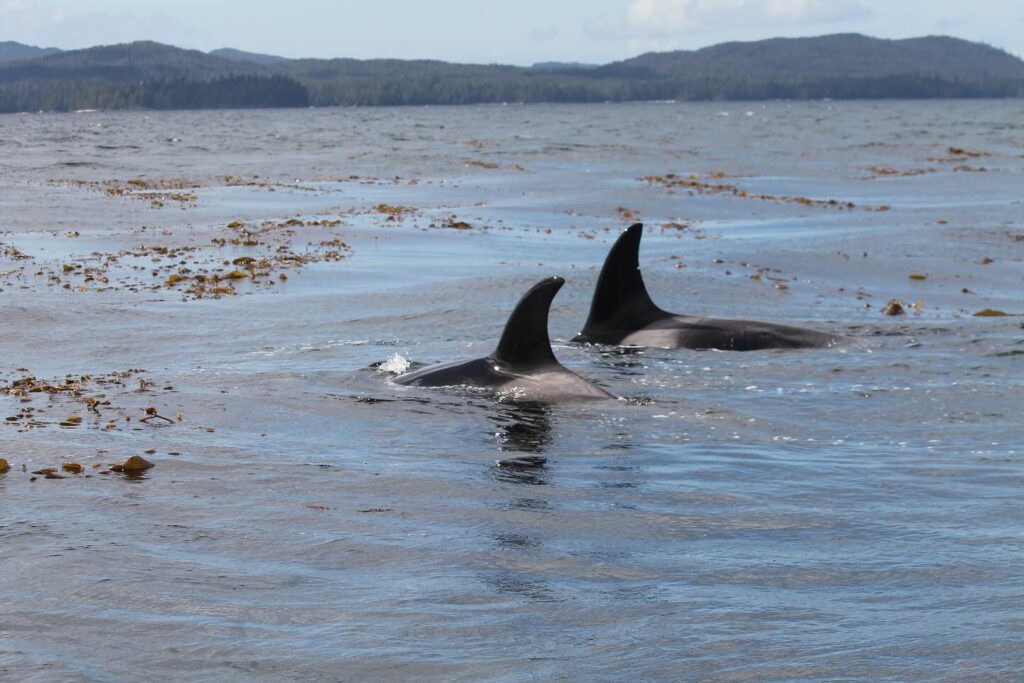
On May 31st, Fisheries and Oceans’ Marine Mammal Unit went to Esperanza Inlet, where Brave Little Hunter was last seen, to try and find the calf. However, she was not there.
Lara Sloan, a spokesperson from the DFO, echoed Towers’ opinion that this likely means the calf has either moved on with a different pod of Bigg’s killer whales or is still actively searching for her relatives.
Sloan expects that there will be sightings of Brave Little Hunter, possibly with her pod, as we inch closer to the summer. Improved weather conditions means that specialists can be sent out to search for the calf and her family and confirm any potential sightings.
Orcas are capable of swimming great distances within a short amount of time. Recently, a group of Bigg’s killer whales were observed swimming from Hornby Island to Friday Harbour in just 33 hours. That’s about two-thirds the length of Vancouver Island.
This mighty pace could account for why it is taking a while for Brave Little Hunter to catch up with her pod. While there is little human intervention can do without causing more harm to the orcas, officials will continue monitoring the situation.
For more information, check out this article.
